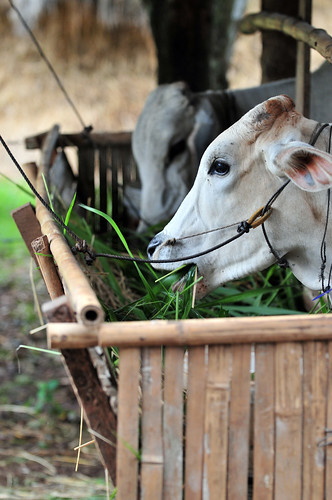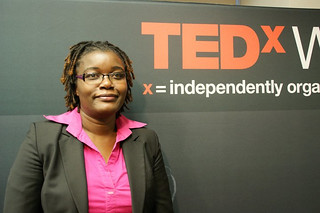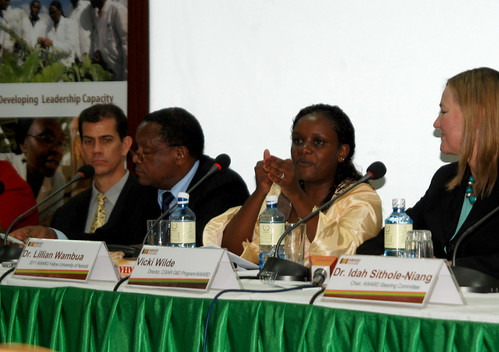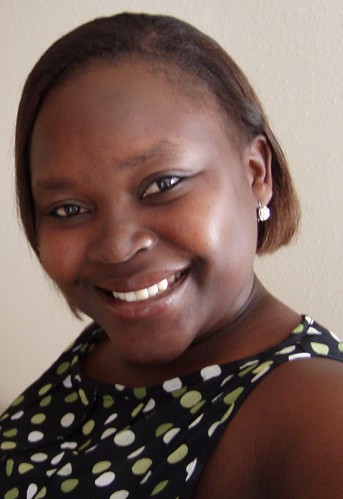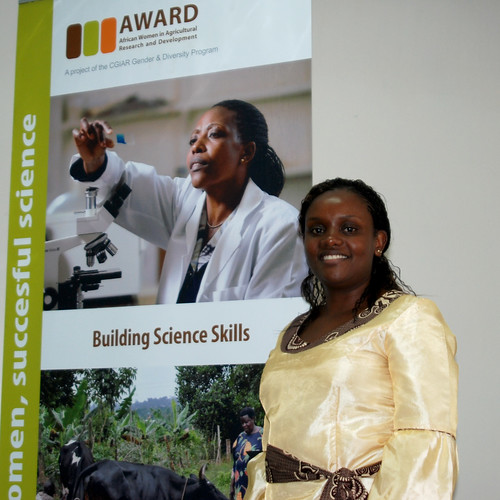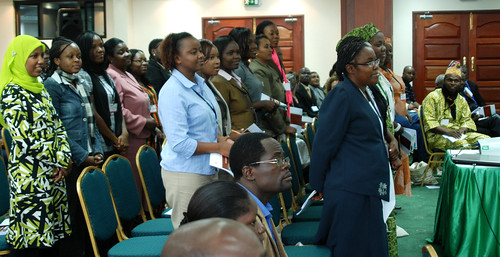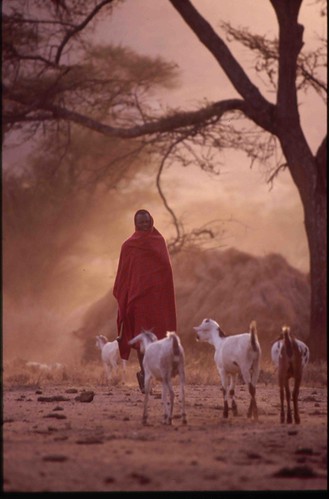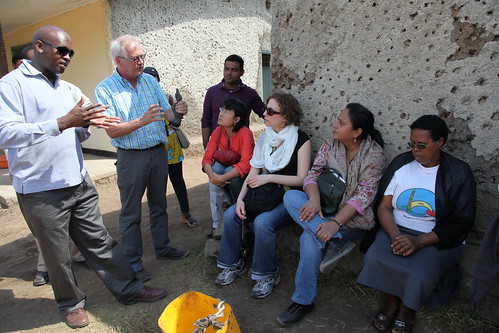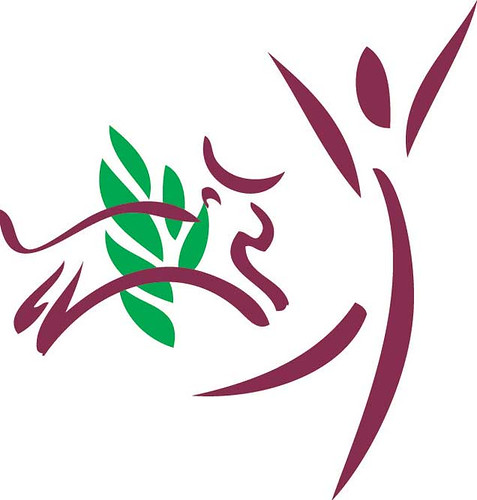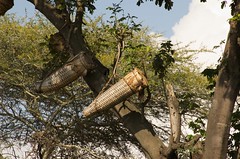A cow feeds on improved CIAT forage grasses, in Kampong Cham, Cambodia (photo credit: Neil Palmer/CIAT).
Last week, coming on the heels of a Planet Under Pressure conference in London, which set out to better define our ‘planetary boundaries’ and to offer scientific inputs to the Rio+20 United Nations sustainable development conference this June, a group of leaders in Asia—comprising agriculture and meteorology chiefs, climate negotiators and specialists, and heads of development agencies—met to hammer out a consensus on ways to make Asian agriculture smarter.
The workshop, Climate-smart agriculture in Asia: Research and development priorities, was held 11–12 April 2012 in Bangkok. It was organized by the Asia-Pacific Association of Agricultural Research Institutes; the CGIAR Research Program on Climate Change, Agriculture and Food Security; and the World Meteorological Organization.
This group set itself three ambitious tasks: To determine the best options (1) for producing food that will generate lower levels of greenhouse gases, which cause global warming; (2) for producing much greater amounts of food, which are needed to feed the region’s rapidly growing and urbanizing population; and (3) for doing all this under a changing climate that, if farming and farm policies don’t change, is expected to reduce agricultural productivity in the region by anywhere from 10 to 50 per cent over the next three decades.
The workshop participants started by reviewing the best practices and technologies now available for making agriculture ‘climate smart’. They then reviewed current understanding of how climate change is likely to impact Asian agriculture. They then agreed on what are the gaps in the solutions now available and which kinds of research and development should be given highest priority to fill those gaps. Finally, they developed a plan for filling the gaps and linking scientific knowledge with policy actions at all levels.
On the second of this two-day workshop, the participants were asked to short-list no more than ten key areas as being of highest priority for Asia’s research and development communities.
This exercise tempted this blogger to suggest ten suitable areas in the livestock sector.
(1) Lower greenhouse gas emissions from livestock through adoption of improved feed supplements (crops residues) that reduce greenhouse gas emissions.
Contact ILRI animal nutritionist Michael Blümmel, based in Hydrabad, for more information: m.blummel at cgiar.org
(2) Safeguard public health by enhancing Asia’s capacity to detect and control outbreaks of infectious diseases transmitted between animals and people.
Contact ILRI veterinary epidemiologist Jeff Gilbert, based in Vientienne, for more information: j.gilbert at cgiar.org
(3) Improve the efficiency of water used for livestock and forage production.
Contact ILRI rangeland ecologist Don Peden, based in Vancouver, for more information: d.peden at cgiar.org
(4) Pay livestock keepers for their provision of environmental services.
Contact ILRI ecologist Jan de Leeuw, based in Nairobi, for more information: j.leeuw at cgiar.org
(5) Recommend levels of consumption of meat, milk and eggs appropriate for the health of people, their livelihoods and environments in different regions and communities.
Contact ILRI partner Tara Garnett, who runs the Food Climate Research Network based in Guildford, for more information: t.garnett at surrey.ac.uk
(6) Design institutional and market mechanisms that support the poorer livestock keepers, women in particular.
Contact ILRI agricultural economist Steve Staal, based in Nairobi, for more information: s.staal at cgiar.org
(7) Educate publics in the West on the markedly different roles that livestock play in different regions of the world.
Contact ILRI systems analyst Philip Thornton, based in Edinburgh, for more information: p.thornton at cgiar.org
(8) Adopt risk- rather than rule-based approaches to ensuring the safety of livestock foods.
Contact ILRI veterinary epidemiologist Delia Grace, based in Nairobi, for more information: d.grace at cgiar.org
(9) Focus attention on small-scale, relatively extensive, mixed crop-and-livestock production systems.
Contact ILRI systems analyst Mario Herrero, based in Nairobi, for more information: m.herrero at cgiar.org
(10) Give livestock-keeping communities relevant and timely climate and other information via mobile technologies.
Contact ILRI knowledge manager Pier-Paolo Ficarelli, based in Delhi, for more information: p.ficarelli at cgiar.org
Do you have a ‘top-ten’ list of what could make Asian agriculture ‘smart agriculture’? Post it in the Comment box, please!
Go here for ILRI blogs about the Planet Under Pressure conference.

